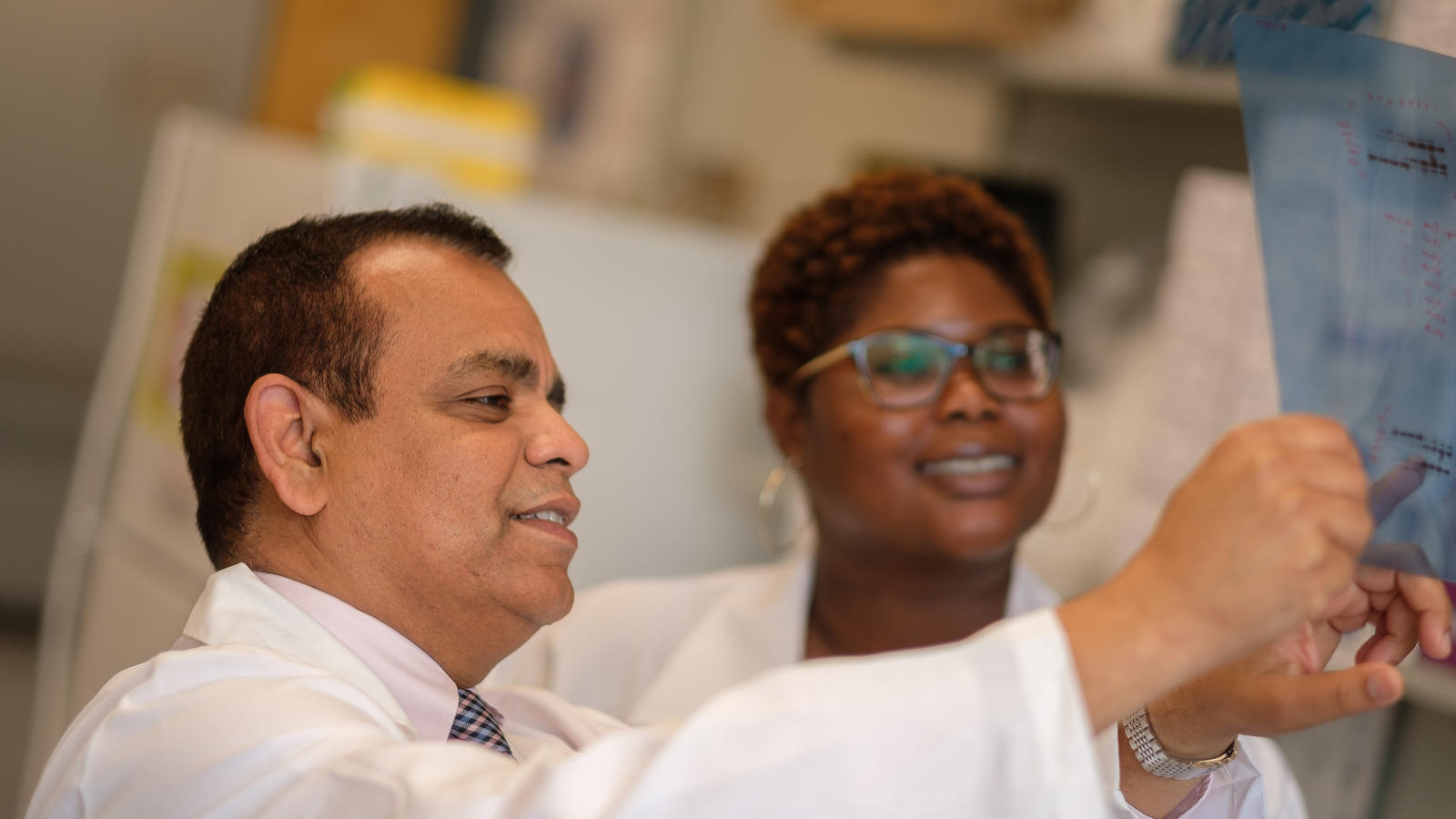Kumar is a cancer health disparities researcher by trade. Through research, he seeks information about the biological basis of cancer health disparities.
Discovery and Passion Fuel Research Director’s Success

Research is about generating new knowledge. For Deepak Kumar, Ph.D., research is not only his career, it’s his passion.
His decades-long quest to identify and understand how genetics and environment impact health was recognized in May by the National Institute on Minority Health and Health Disparities, who named him a “History Maker” in minority health disparities research.
It is important to understand what affects individuals scientifically, while also addressing how it directly affects their daily lives.
As director of North Carolina Central University’s Julius L. Chambers Biomedical/Biotechnology Institute (BBRI), Kumar works to increase the number of minority researchers in medicine and urges more researchers to investigate health disparities.
In higher education, you are able to pursue your passion and do things for public good while working with students and making a difference in their lives. It’s an opportunity I wouldn’t pass up for anything.
At NCCU, health disparities researchers work to determine why certain diseases occur at a higher rate among minorities, including kidney disease, prostate cancer, diabetes and others.
Projects at the Center for Health Disparities Research involve robust mentoring of undergraduate and graduate students, development of core research facilities, and the opportunity to work with partners ranging from community-based organizations to private laboratories in the Research Triangle area. The research environment at BBRI helps postdoctoral trainees enhance their career trajectory and benefits NCCU faculty at all levels, Kumar said.
Future discoveries are likely to include more personalized drugs, targeted therapies and diagnostic tools for a broader range of people. Strides in cancer research and new treatments aimed at the aging population will ultimately allow people to live longer, healthier lives, he adds.

Kumar, a mentor for NCCU’s top performing Cheatham-White Scholars, said he uses a hands-on approach to honing their research skills. In summer 2019, two of the scholars worked on research projects at the North Carolina Research Campus at Kannapolis, where NCCU operates laboratories in conjunction with other universities and corporate partners.
“Find your passion, do something you really love,” he tells his students. “To be a successful researcher, one must be passionate and relatable. If you love what you do you will prevail.”
Among Kumar’s many accomplishments since he arrived at NCCU is securing a $16.3 million Research Center in Minority Institutions grant from the National Institute on Minority Health and Health Disparities. The 2017 award has helped elevate the focus on health disparities research and was the largest annual grant ever received by the university, excluding Title III grant funding, and the largest for a single principal investigator on campus.
Kumar received his B.S. and M.S. degrees from Agra College in Agra, India, and his Ph.D. in zoology/molecular biology at RML Avadh University.
Prior to joining NCCU, Kumar served in several leadership roles at the University of the District of Columbia. During his time at UDC, he created new biology courses on health disparities, biology of aging and genomics for personalized medicine.
Kumar also served as an adjunct assistant professor and a member of the Lombardi Comprehensive Cancer Center at Georgetown University after completing his postdoctoral fellowship at Georgetown.
When he isn’t in the lab, you are likely to find him taking a stroll, reading, listening to music, or spending time with his family.